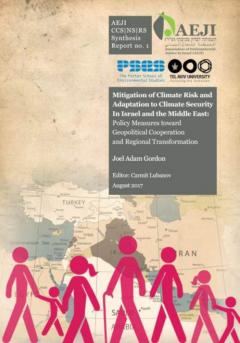
Abstract
The paper aims to provide a base for future assessments of "Climate Change and Security" in Israel and the Middle East. The linkages between climate change and National security are discussed vis-à-vis the current geopolitical landscape and associated transboundary challenges. Current climate-security challenges include migratory pressures, climate refugees, water stress and food insecurity. The study employs the Intergovernmental Panel on Climate Change (IPCC) framework of "Climate Mitigation and Adaptation" to assess prospects for climate-security in the region. Preliminary findings correlate Israel’s potential role in climate-security politics to positive economic benefits. Climate Change Leadership (CCL) offers an alternative pathway for regional cooperation and geopolitical stability through the promotion of Middle Eastern-Mediterranean Alliances (MEMA’s). Foremost this vision aligns to a core strategic national masterplan – Leveraging for Geopolitical Cooperation and Regional Transformation – designed to strengthen Israel’s commitment towards a Climate Compatible Future (CCF). To help achieve this future, the final chapter suggests policy recommendations to promote geopolitical cooperation and regional transformation in response to the socio-economic and environmental pressures of anthropogenic climate change.
The report was initiated and conducted by AEJI with cooperation of the Internship program of the International MA Program - The Porter School of Environmental Studies, Tel Aviv University, 2017.

